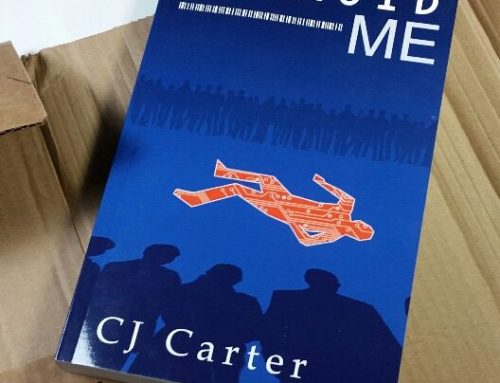Yup…the up and down odyssey that has been the penning of the novel is now essentially over. An agenty friend of mine, with whom I’ve partnered on non-writing projects over the years, agreed to read part of my novel. As part of our agreement, I committed to shelving it if she said that was what needed to be done in order to not damage my reputation with any future prospective publishers. Since I like to think I have a fair portion of integrity, I’m fulfilling my part of the agreement. I did not, however, agree not to grouse about it (at least a little).
With only one exception, I did not complain about her comments. In the context of the current publishing world, they have a lot of merit. Not only have I heard them before, but I’ve echoed them to others—not so much because I endorse them unequivocally, but because it’s pragmatic for writers to do so.
The first smack upside my head was that I’m wordy. I use long sentences and polysyllabic words. I agree. I can be wordy. In fact, as readers of my blogs and letters can attest, I can be very wordy. Here’s the thing: I got tired of simplifying my writing. The standard is to write to someone with a sixth-grade education. Well, excuse me for going to school, but I love the language too much to do that. If I write a sentence that has fewer than eight words, I do it so that sentence has impact. It resonates. It gets attention. Not because someone’s attention span won’t survive the various phrases and whatnot to make it all the way through to the period. Without the contrast of longer sentences, the impact gets lost.
One of the things mentioned was that the sentences were so long that she’d run out of breath before she reached the end. You know…get an inhaler. I’ve read out loud the entire novel about a half-dozen times. Guess what, it can all be spoken without losing your breath. In fact, I like to think it is more rhythmic than the staccato verses you often get with all those shorter sentences in other’s more standard works.
Another complaint was the hard-to-pronounce names. I grant, some of the alien names take a bit of practice if you want to say them. However, as I mentioned, I have read the novel aloud and everything CAN be pronounced. The specific example used was for one of my humans: Pervikh. I pointed out that it’s a perfectly valid Russian name (for a character of Russian background, by the way). She said that she wasn’t Russian. Gah! This is one of those give-me-a-break moments where I had to bite my tongue.
I have to say that there did seem to be an element of American-centric bias in some of this. I was asked at one point if I was writing to a European audience. That seemed sort of curious. But then I was castigated for using the metric system…the friggin metric system! (This is the thing I did argue about.) OK, let’s forget for a moment that, in all of the countries of the world, only three of them aren’t officially using the metric system (United States, Liberia, Myanmar) and of those three, two do use the metric system internally ex-officio. That pretty much means that only ONE country doesn’t use metric. Why would I want to limit myself like that? I mean, maybe if it were a formula romance or something taking place in contemporary America I could see it, but this is a science fiction story set quite a ways off in the future. In that context, it makes no sense to use avoirdupois (for those that don’t remember, that’s what the U.S. system is called).
One last thing (there are more, but I think I’m making my point): I’m not totally sure that the reading went much further than the first chapter, as all of the examples she cited were from it. I mean, if she didn’t like the metric system, she had to hate, Hate, HATE the pronoun neologism (which she never mentioned). Perhaps she did read the entire sample. In deference to her professionalism, I’ll assume that she did. It would have been nice if there had been some critique that indicated that, if only for my ego. Given that I was put on the bottom of her to-do list for over three months (remember my budding writers…you have to be patient), and only gave me this review after I prompted her about the delay, I’d hoped for the appearance of more effort on her part. When I read for someone, I read it all, comment on it all, and try not to needlessly belabor points already made.
And I’ll stop the creebing there. Suffice it to say, I can’t argue with the reality of the situation that if you want to get published, it’s unlikely that doing any or all of what I did above will have you see your goal of finding a U.S. publisher. It’s understandable. As the education system has failed to make much more than a functionally illiterate society (excepting those few, those happy few who want more for themselves) it’s no wonder that in an effort to make money the publishers cater to the lowest common factor.
I happen to have higher expectations of people. I figure that if we want people to be able to read, and think, and do all those other things we say we want, then we need to foster an atmosphere where the comparably rarefied air of non-simplified is something that is desirable. I like to think that people want to make the best of their lot, but if we never test them, never challenge them to take the steps away from their mundanity, then nothing actually gets better. In fact, perhaps the opposite is more likely.
And lest you assume that I think my novel is the best thing since sliced bread, I don’t. It definitely has its problems…not the least of which is that I can, indeed, be wordy. It does not fit into the current publishing style, nor was it meant to. I didn’t intend to write to children. My target was adults who like to read “hard” (i.e. non-fantastical) science fiction. Amazingly, my friend never asked who my target audience was. But, being someone who takes their word seriously, and since I still entertain thoughts of being legitimately published, it has been shelved. If, however, I decide that I want it out there more than I want the writing contract, you’ll probably find it at lulu.com or some equivalent someday.





